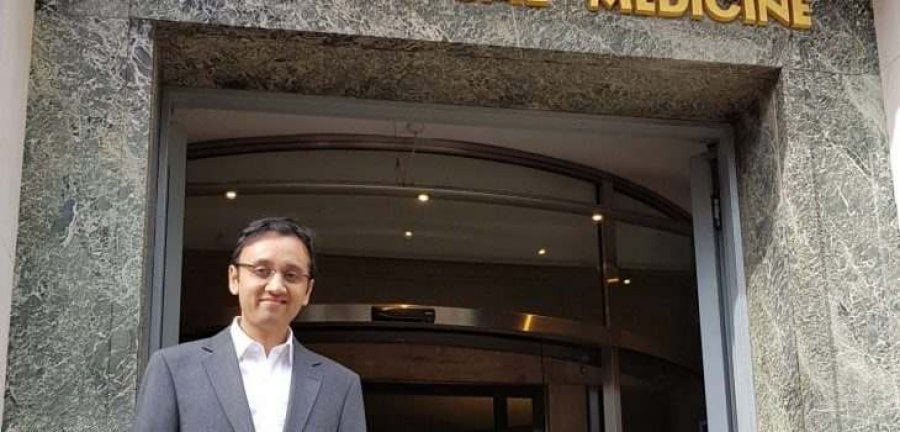COVID-19 Alumni Stories: Sathish Kumar
2 August 2020 London School of Hygiene & Tropical Medicine London School of Hygiene & Tropical Medicine https://lshtm.ac.uk/themes/custom/lshtm/images/lshtm-logo-black.png
How has the COVID-19 outbreak affected your work?
In India, COVID-19 started more gradually than most other countries. After a surge of cases in March, the whole nation was put under lockdown. Being a clinician, I continued my clinical duties without interruption even during the lockdown. Regular outpatient and inpatient services continued with strict infection control precautions and social distancing practices. We had to maintain distancing from our family members, especially our children and parents during this time.
Also, we created designated rooms where we disposed of our PPE and hospital clothing and washed completely before entering our homes. As the pandemic got stronger, further restrictions on goods and services led to drug shortages and unavailability of referral laboratory services for certain investigations.
How have you been responding to the outbreak?
Because of transportation disruptions and movement restrictions, patients from the villages in the surrounding areas suffered from delayed or interrupted access to our health services. Therefore, almost all clinicians had to make a quick jump to telemedicine so that patients on follow-up can still consult with us remotely. Thankfully, since we have strong telecommunications networks, we are able to connect with patients during this time.
How has your country’s response to the outbreak affected your work?
The Health Ministry advised all health facilities to function with separate fever OPDs segregated from non-fever patients. In case that was not possible, we had to divert our patients to designated fever centres in town.
For patients visiting clinics, we have been instructed to undertake screening at the entrance which included non-contact temperature monitoring, hand washing basins with running water and issuing face-masks. This meant we had to quickly set up these facilities to continue our regular services.
Additionally, all clinic staff had to perform duties with PPEs. Making visitors and patients adhere to the regulations was a challenge, but as the news spread and awareness grew, we saw positive changes.
How has LSHTM’s training helped you during this outbreak?
My training at LSHTM has fundamentally changed my approach to patients. It has taught me to look into the broader context of why and how patients manage their health problems in a certain way. In a low- and middle-income country like India, ever so often the socio-economic factors play a major role in people’s decisions and as clinicians we need to understand that too.
Furthermore, my learnings on infection control and the importance of hygiene have been very helpful in my practice. The training on tropical diseases has made me more vigilant on the common infections (TB, Dengue, Scrub typhus, etc) which by themselves are a major concern in our country. Even though the pandemic has diverted much of our time and resources to COVID-19, we should not forget these common but potentially severe infections.
My course at LSHTM made me really interested in public health and hygiene. Therefore, after completing my course, I began working on a school hygiene project in our town with the help of my wife who is a health counsellor. We have completed two years of the school hygiene programme where we teach kids of all grades about hygiene, infection control and antimicrobial resistance through fun interactive activities. We also plan to start community awareness programs on hygiene and AMR in the future through our newly setup NGO.